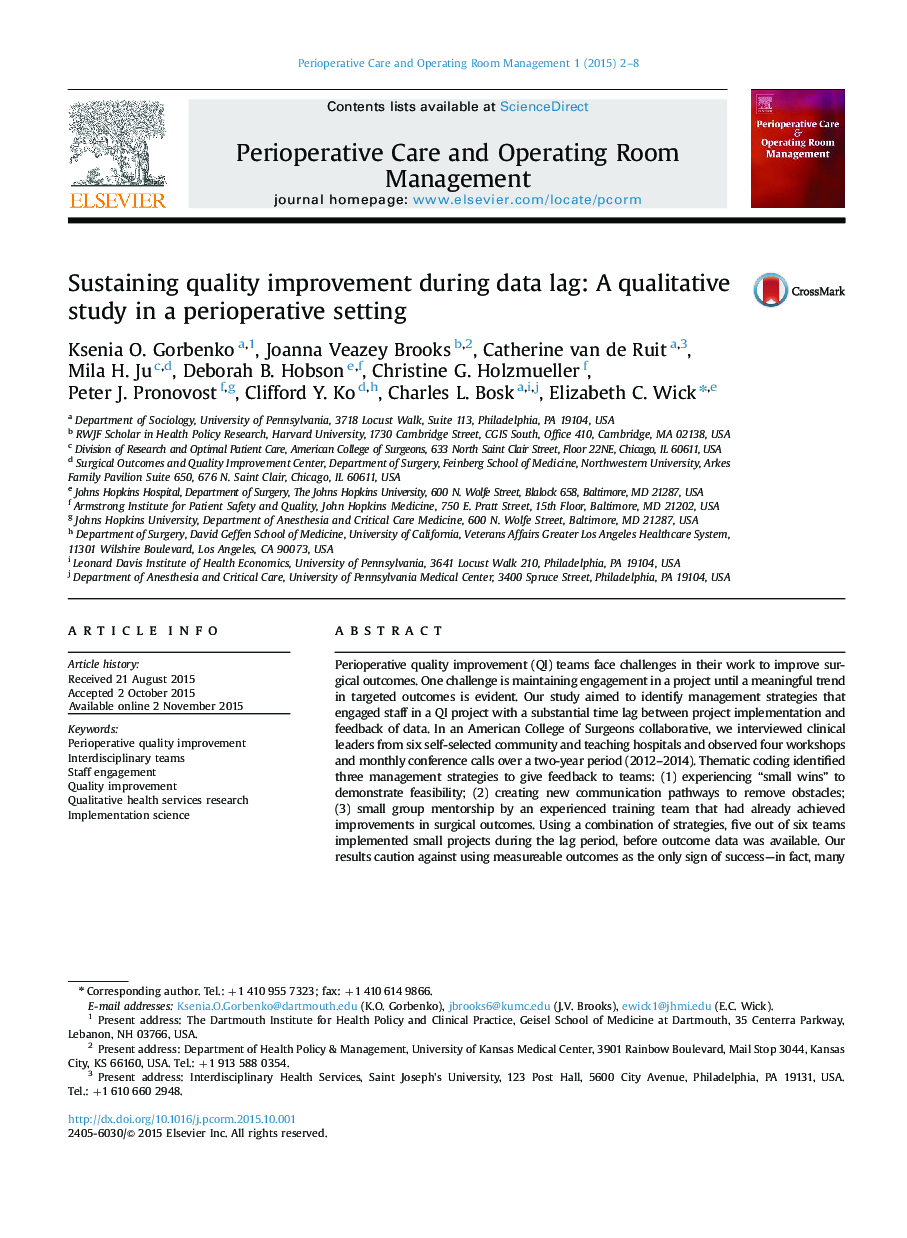| Article ID | Journal | Published Year | Pages | File Type |
|---|---|---|---|---|
| 1026782 | Perioperative Care and Operating Room Management | 2015 | 7 Pages |
Perioperative quality improvement (QI) teams face challenges in their work to improve surgical outcomes. One challenge is maintaining engagement in a project until a meaningful trend in targeted outcomes is evident. Our study aimed to identify management strategies that engaged staff in a QI project with a substantial time lag between project implementation and feedback of data. In an American College of Surgeons collaborative, we interviewed clinical leaders from six self-selected community and teaching hospitals and observed four workshops and monthly conference calls over a two-year period (2012–2014). Thematic coding identified three management strategies to give feedback to teams: (1) experiencing “small wins” to demonstrate feasibility; (2) creating new communication pathways to remove obstacles; (3) small group mentorship by an experienced training team that had already achieved improvements in surgical outcomes. Using a combination of strategies, five out of six teams implemented small projects during the lag period, before outcome data was available. Our results caution against using measureable outcomes as the only sign of success—in fact, many small signs can be seen before the data lag is over. When data lags are likely, observable incremental steps and support of an experienced team can help build relationships across the organization that will help keep providers in the project.
